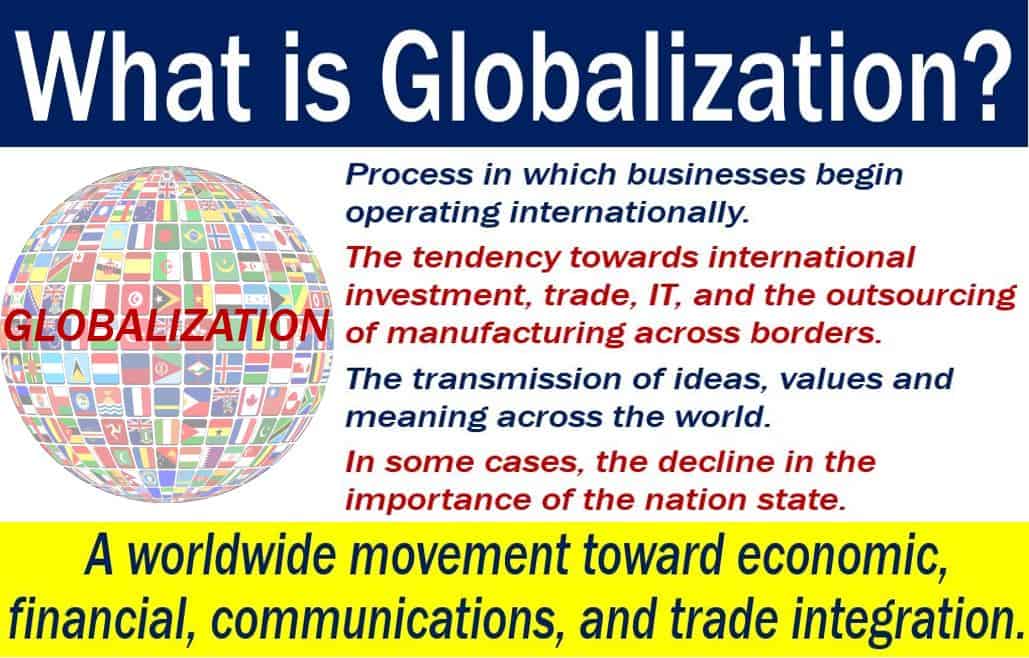Globalization refers to the process by which companies start operating internationally and develop influence across borders. In fact, people use the term so commonly today that it has taken on some additional meanings. Often, people see globalization as an undesirable and even evil consequence of businesses expanding and becoming giant multinationals.
The term describes the tendency towards international investments, trade, and information technology. It also refers to the outsourcing of manufacturing across borders.
Additionally, the term refers to companies relocating their production plant in different countries, i.e., offshore manufacturing.
Many businesses today assemble or manufacture products abroad and then sell them in the country. We call that offshore production.

Globalization not new
Many people think that the internationalization of business, culture, etc., is a new phenomenon. In fact, it has been taking place for several centuries. However, over the past fifty years, it has accelerated significantly.
The following features have been the results of globalization:
- Much greater international trade, i.e., the purchasing and selling of goods and services across borders.
- More companies that operate in multiple countries, i.e., multinational companies.
- Much greater and freer movement of goods, capital, and services.
- The recognition of several multinational corporations, such as Starbucks and McDonald’s, in LEDCs. LEDC stands for Less Economically Developed Country.
Globalization and the wealth gap
Most economists agree that globalization is helping create more wealth; especially in the emerging markets. The emerging markets are countries whose economies are growing rapidly, but they are not yet advanced economies. China, India, Brazil, and Mexico, for example, are emerging markets.
However, the growth of multinationals and international trade does not appear to be helping close the wealth gap.
The wealth gap refers to the difference in incomes and wealth between the world’s richest and poorest countries. The term wealth gap also refers to the difference in wealth between countries and within countries.
The term ‘economic inequality’ also refers to the gap between rich people/people and poor people/countries.
Other examples
Cultural Globalization
This term refers to the transmitting of values, meanings, and ideas across the world. The transmission of culture internationally results in the extension and intensification of social relations.
Political Globalization
The term refers to the decline in the importance of the nation-state. The European Union and other supranational institutions replace or extend national functions. Political globalization facilitates international agreements.
The G8, the International Criminal Court, and World Trade Organization are also examples of supranational institutions.
Over the past two or three decades, the number of negative articles about globalization has increased considerably. Correspondingly, the proportion of positive articles have declined.
Since the beginning of this century, the total number of articles about this theme has also increased significantly.
According to most polls, residents in Asia and Africa view globalization more favorably than their European and North American counterparts.
In 2016, there was a referendum in the United Kingdom regarding the European Union (EU). Britons voted to leave the EU. In other words, they voted for BREXIT. BREXIT stands for BRitain EXITing the EU.
The referendum result showed that many Britons were not happy with some aspects of globalization. Above all, the majority of British voters wanted British lawmakers to make decisions regarding immigration. EU members must sign up to the free movement of people within the economic bloc.
